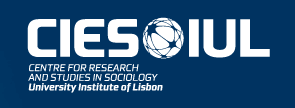 A deliberative poll involving 2,000 residents and small group discussions will assess public opinion on the revision of the Press and Broadcasting Law
A deliberative poll involving 2,000 residents and small group discussions will assess public opinion on the revision of the Press and Broadcasting LawA group of experts will launch a ‘deliberative poll’ next month to assess public opinion on the revision of the Press and Broadcasting Law. This “advanced method” will allow residents “to become better informed” before giving their views, they claimed.
The proposal came from local company E-Research & Solutions (ERS), who was awarded a MOP 3.5 million tender.
The final report of the one-year project that includes scholars from the US, Hong Kong and Portugal should be ready by the end of August 2012.
The first step will be a public survey starting next month but that will just be the first step in a more extensive process.
In December 2,000 residents will be polled based about “balanced information that includes all competing arguments,” said Stanford University professor James Fishkin in a press conference held yesterday.
All materials will be reviewed by an advisory committee composed of “experts representing different points of view as a guarantee of balance,” including some local scholars, he added.
Later 200 to 300 people will be “recruited” – with the help of ‘incentives’ – to join small group discussions with experts before taking a second poll with the same questions. “The experts will give no speeches, just answer questions,” said Fishkin, who pioneered deliberative polling.
Transparency pledge
“The public is usually not very well informed and might not even have an opinion on complicated issues,” he explained. This method allows for people to “understand the trade-offs” and give better informed opinions, the director of Stanford’s Centre for Deliberative Democracy.
At the same time a similar process will poll journalists and other media staff.
“We have dealt with some very controversial issues such as Roma [people] in Europe or education in Northern Ireland,” said Fishkin. “We discovered that, if informed, people are actually very smart collectively,” he added.
And, the scholar stressed, “the information system will affect the public, it’s a public policy issue”. “It’s worth the time and trouble of consulting the public,” he said.
“The whole process, the materials, the sessions, it will all be public and transparent,” Fishkin promised. There will be more than 70 experts and researchers involved, said ERS director Angus Cheong Weng Hin.
“No issue is off the table,” said Government Information Bureau director Victor Chan Chi Ping, before mentioning media subsidies and new Internet-based media as an example.
The legislative work will only begin after a wide debate so that a revision can be completed within two to three years, an official statement added.
“Both Macau, Hong Kong and mainland China are at a crossroads in relations between the government, media, society and the whole political framework,” said Zhao Xinshu, Dean of the Hong Kong Baptist University’s School of Communication.
“Macau can be a very important reference for other countries,” added Gustavo Cardoso, researcher at Portugal’s ‘Instituto Universitário de Lisboa’, at a time when journalism is struggling to find its place in modern society.
 A deliberative poll involving 2,000 residents and small group discussions will assess public opinion on the revision of the Press and Broadcasting Law
A deliberative poll involving 2,000 residents and small group discussions will assess public opinion on the revision of the Press and Broadcasting Law







